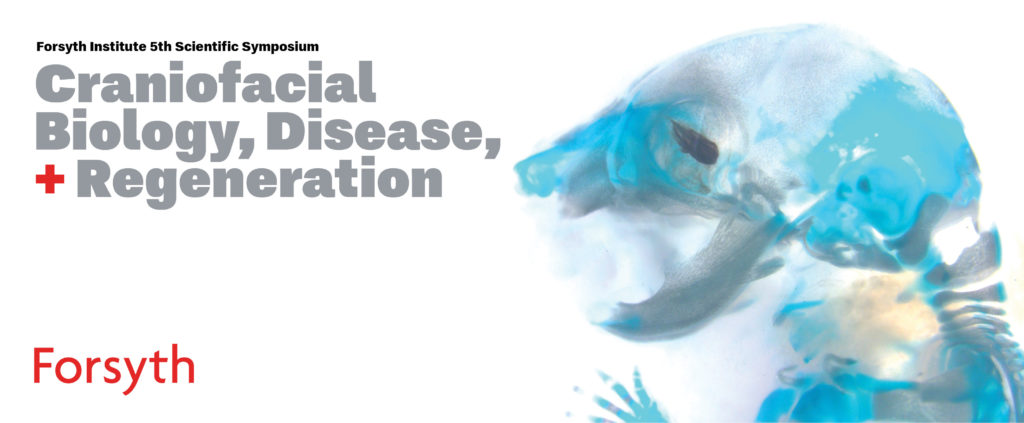This is the current list of speakers and their bios for the Forsyth Craniofacial Symposium. Please check periodically for updates.
Day 1 Wednesday, Nov. 2
Welcome
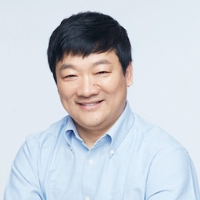
Dr. Wenyuan Shi is currently the Chief Executive Officer & Chief Science Officer of the Forsyth Institute, an affiliate of the Harvard School of Dental Medicine. Prior to this position, Dr. Shi was the chairman and professor of Oral Biology at the UCLA School of Dentistry as well as Professor of Microbiology, Immunology and Molecular Genetics at the David Geffen School of Medicine at UCLA. Dr. Shi has led multiple NIH grants to use multidisciplinary approaches to study oral microbiome with a specific focus on microbial biofilm, inter-species interaction and signal transduction. In addition, Dr. Shi’s laboratory is actively involved in the development of next generation diagnostic and therapeutic tools against oral microbial infections, including instant chairside detection of oral pathogens and peptide based targeted antimicrobial therapeutics. These translational research efforts have resulted in novel technologies that are licensed and developed by major pharmaceutical, dental and biotech companies. Dr. Shi is also the founding scientist, former chief scientific officer and chairman of the scientific advisory board of C3J Therapeutics Inc. (www.c3-jian.com).
Special Preconference Session: Postdoctoral Researchers Presentations
Moderator
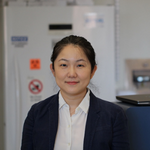
Ning Yu DDS PhD is a Staff Associate at the Forsyth Institute, working with Dr. Thomas Van Dyke. As a clinician-scientist trained in periodontics, she is also an Instructor at Harvard School of Dental Medicine. Her research is focused on utilizing specialized pro-resolving mediators to control periodontal infections and regenerate the lost periodontal tissues.
Panelists
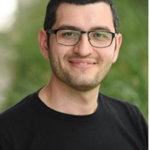
Dr. Yaser Peymanfar is a medical researcher and bone biologist, passionate about bone, bone marrow, and cancer research. He earned his PhD from University of South Australia in 2021. He received his MSc. In Biotechnology in 2013 from India and his BSc. In the field of Veterinary laboratory sciences in 2007 from Iran. He has more than 6 years of working experience in both industry (Vaccine production R&D section) and 7 years in academia (research and teaching). His PhD studies was focused on the roles of Notch and Wnt signaling in Methotrexate (MTX) cancer chemotherapy-induced bone and bone marrow micro-vasculature damage and recovery. His findings leading to understand the molecular mechanism of long-term bone damage following MTX chemotherapy and suggest combination of immunotherapy and chemotherapy to protect healthy bone from chemotherapy side effects. He has published several articles in the field and received outstanding awards and grants during his PhD. Dr. Yaser is currently a postdoctoral research fellow working in Dr. Philip Trackman’s lab in the Forsyth institute, investigating mechanisms of diabetic bone diseases that involve disruption of an anabolic pathway between the gut and osteoblasts.
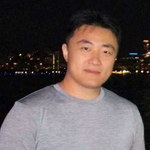
Dr. Congyu Yu graduated from the Department of Earth and Environmental Sciences in Columbia University with a degree in paleontology. During his PhD, Dr. Yu studied the evolution and development in Ceratopsia, a group of horned dinosaurs including the Triceratops, which have evolved one of the most extreme cranial structures among vertebrates. Dr. Yu now is a postdoc fellow in the Harvard School of Dental Medicine, working on the molecular mechanism of Wnt/PCP signaling pathway, particularly its role in the craniofacial morphogenesis during vertebrate development.
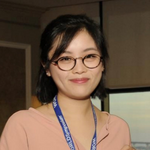
Dr. Zhirui Jiang received her Ph.D. in Biological Science at the University of Adelaide in Australia and came to the U.S. as postdoctoral fellow at the University of Pennsylvania to study skeletal defects in lysosomal related genetic disorders. She joined Hsu lab at Forsyth in March 2022. Her current research focuses on understanding the regulatory mechanism underlying skeletal and craniofacial development and to study skeletal stem cells in calvaria sutures using bulk RNA-seq, single cell RNA-seq and ATAC-seq analyses as well as imaging analyses.
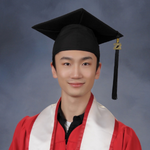
Jing completed a BA in Human Physiology at Boston University in 2022. During the school years, he served as a national registered EMT, as well as attained Vaccine and Immunotherapy Center at Massachusetts General Hospital, where he participated in neural receptor expressions in ALS disease research. Starting from February 2022, he started working at Tufts Dental School in Dr. Jake Chen’s lab. Working with other departments and institutions, he initiated his own project on studying the effect of mRNA in treating osteoarthritis through lipido-nanoparticle delivery pathway, as well as using micro-RNA through lipido-nanoparticle as a potential treatment for oral squamous cell carcinoma.
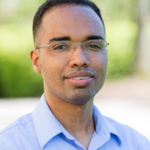
Dr. Nelson Monteiro is an expert in the use of bioengineering principles in medicine and biology. He develops therapeutic solutions for craniofacial tissue regeneration. He has more than ten years’ experience in human stem cell culture, biomaterials, drug delivery, genetic/molecular biology, imaging techniques. He embraces new challenges, and he is always looking for new opportunities to grow, learn, and collaborate.
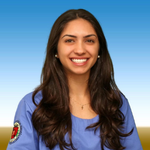
Maria Paula Oliveira Gomes received her DDS with the highest academic standing by School of Dentistry of Ribeirão Preto at University of São Paulo, Brazil. Currently, PhD student in Oral Biology at University of São Paulo, and joined Harvard School of Dental Medicine in Baron-Gori Laboratory as a Research Scholar with scholarship supported by The São Paulo Research Foundation, FAPESP.
Day 2 Thursday, Nov. 3
Welcome
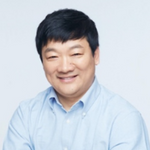
Dr. Wenyuan Shi is currently the Chief Executive Officer & Chief Science Officer of the Forsyth Institute, an affiliate of the Harvard School of Dental Medicine. Prior to this position, Dr. Shi was the chairman and professor of Oral Biology at the UCLA School of Dentistry as well as Professor of Microbiology, Immunology and Molecular Genetics at the David Geffen School of Medicine at UCLA. Dr. Shi has led multiple NIH grants to use multidisciplinary approaches to study oral microbiome with a specific focus on microbial biofilm, inter-species interaction and signal transduction. In addition, Dr. Shi’s laboratory is actively involved in the development of next generation diagnostic and therapeutic tools against oral microbial infections, including instant chairside detection of oral pathogens and peptide based targeted antimicrobial therapeutics. These translational research efforts have resulted in novel technologies that are licensed and developed by major pharmaceutical, dental and biotech companies. Dr. Shi is also the founding scientist, former chief scientific officer and chairman of the scientific advisory board of C3J Therapeutics Inc. (www.c3-jian.com).
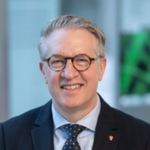
Dr. William Giannobile is dean of Harvard School of Dental Medicine (HSDM), a leader in the field of periodontology and an internationally recognized scholar in oral regenerative medicine, tissue engineering, and precision medicine. Prior to HSDM, he served as the Najjar Endowed Professor and chair of the Department of Periodontics and Oral Medicine at the University of Michigan School of Dentistry. He was also a professor of biomedical engineering at the College of Engineering and Biointerfaces Institute.
Dr. Giannobile received his DDS and MS in oral biology from the University of Missouri. He later received his certificate in periodontology and Doctor of Medical Sciences in oral biology from the Harvard School of Dental Medicine. serves as co-principal investigator for the NIDCR-supported Michigan-Pittsburgh-Wyss Regenerative Medicine Resource Center. In addition to his research efforts, he is involved in clinical and didactic teaching in periodontology and practices clinically in periodontics and implant dentistry at the Harvard Dental Center.
Session 1: Stem Cell and Fate Specification
Moderator
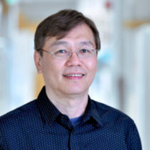
Dr. Hsu has been recognized as a world-renowned leader in craniofacial biology. He is also a pioneer in Wnt signaling with the seminal study of Axin and Gpr177/mouse Wntless. His lab is interested in the mechanisms that support embryonic morphogenesis, tissue homeostasis, disease pathogenesis, and organ repair and regeneration. Focusing initially on Wnt as one of the most prevalent signaling pathways in developmental biology, his research team is establishing how Wnt signaling and its crosstalk with other pathways control pluripotency and differentiation in stem cells and homeostasis in mature cells. More recently, his lab also has focused on epigenetics, post-translational modification, ciliopathy, and laminopathy, causally linked to human diseases. The objective is to use the basic knowledge to develop innovative strategies for disease prevention and therapy.
Dr. Hsu received his Ph.D. in Biomedical Sciences at Mount Sinai Medical Center in New York City. He was awarded a postdoctoral fellowship from National Kidney Foundation to study Mammalian Genetics and Developmental Biology at Columbia University. Dr. Hsu had been a Professor of Biomedical Genetics at the University of Rochester Medical Center since 2002. He was also a course director of Advanced Genetics, served as co-Director of an NIDCR T90/R90 training grant, and hold Dean’s Professorship before joining Forsyth in 2021.
A tremendous effort has been devoted by Dr. Hsu to serve on international committees and review panels (e.g., NIH, DOD, Medical Research Council of UK, Japanese Society for Promotion of Science, A*STAR of Singapore, Dutch Cancer Society), and as the editor (e.g., PLOS Genetics, Journal of Dental Research) and reviewer (e.g., Science Translational Medicine, Science Signaling, Nature Communications, PNAS, EMBO, Cancer Research, Cell Death & Differentiation). The leadership that Dr. Hsu provides to the field of Developmental and Stem Cell Sciences is further solidified by more than 70 invited lectureships at research conferences and leading biomedical institutions worldwide. He is dedicated to advocating research and serving the academic community.
Dr. Hsu maintains an active teaching role throughout his career. In addition to being a lecturer and course director, a critical aspect of his teaching is being an active mentor. Dr. Hsu has supervised a vast number of students and postdocs with many of them holding principal investigator positions in academic and research-oriented institutions. He is particularly passionate about undergraduate education and has an extensive track record of training future scientists. Most of them went on to medical, dental, and graduate schools. His recent research mainly focuses on craniofacial and skeletal development, congenital birth defects, and the study of skeletal stem cells and stem cell-mediated regeneration. The outcome of his research has always been impactful and published in prestigious journals. His vibrant research program has been supported by the National Institutes of Health, Department of Defense, NYSTEM/New York State Stem Cell Science, March of Dimes. Dr. Hsu provides leadership for the Craniofacial and Dental Research Center at The Forsyth Institute.
Panelists
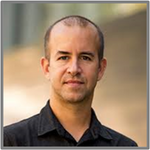
Dr. Gage Crump has made a career of using genetics and in vivo imaging to understand how complex organs are assembled. As a postdoc, he developed single-cell lineage techniques and in vivo time-lapse microscopy in zebrafish to make the first fate map of the vertebrate facial skeleton. As a founding member of the Broad Stem Cell Center at USC, his group studies the development, maintenance, and regeneration of the adult craniofacial skeleton. His lab has established a number of models of human birth defects in zebrafish, including for craniosynostosis, craniofacial dysmorphologies, arthritis, and black bone disease, and is using these to understand the developmental bases of craniofacial disease. Their unique efforts in validating zebrafish discoveries in mammalian models show their commitment to one day translating foundational research findings in zebrafish into new therapies for patients.
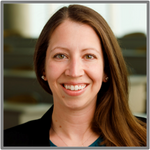
Dr. Fantauzzo received a Bachelor of Science in biology from Bucknell University in 2003 and a Ph.D. in genetics and development from Columbia University under the mentorship of Dr. Angela Christiano in 2010. In 2011, she
joined the laboratory of Dr. Philippe Soriano as a postdoctoral fellow in the Department of Developmental and Regenerative Biology at the Icahn School of Medicine at Mount Sinai. Her postdoctoral work focused on the roles of the receptor tyrosine kinases PDGFRalpha and PDGFRbeta in development of the murine facial midline.
Dr. Fantauzzo joined the Department of Craniofacial Biology in the School of Dental Medicine at the University of Colorado Anschutz Medical Campus as an Assistant Professor in the Fall of 2016. Her laboratory is focused on investigating the mechanism and function of signaling through the PDGFR family in development of the cranial neural crest-derived craniofacial skeleton, with a particular goal to characterize novel intracellular pathways and cellular processes engaged downstream of PDGFR induction. The laboratory employs innovative techniques in the field of growth factor signaling to dissect the mechanisms by which PDGFRs stimulate distinct cellular activities, thus providing significant insight on how biological specificity is introduced downstream of receptor tyrosine kinase engagement and highlighting new therapeutic directions aimed at the treatment of human craniofacial birth defects.
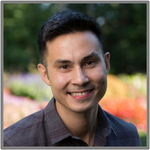
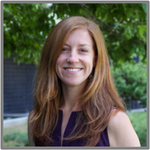
Lindsey grew up in northeastern Connecticut and completed a BA in Biology at Pomona College in Los Angeles in 2004. She attained her PhD in Cell and Developmental Biology at Duke University (2006-2011), where she studied ovarian development and sex determination with Blanche Capel. For her postdoctoral training (2012-2018), she shifted to neural crest and craniofacial development, working with Gage Crump at the Eli and Edythe Broad Center for Regenerative Medicine and Stem Cell Research at University of Southern California. In the summer of 2018, she opened her own lab in the Divisions of Human Genetics and Developmental Biology at Cincinnati Children’s Hospital Medical Center. Her group studies how genes linked to human disease control skeletal form and pattern within the skull.
Session 2: Development and Disease
Moderator
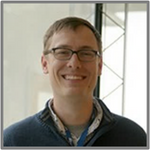
Jeff Bush is the Barber Distinguished Professor and Chair of the Department of Cell and Tissue Biology and part of the Program in Craniofacial Biology at UCSF. He performed his Ph.D. training in mouse genetics and craniofacial biology in the lab of Rulang Jiang at the University of Rochester, where he focused on positional cloning of a mutation that causes cleft lip and palate in mice. He performed his postdoctoral work in the laboratory of Philippe Soriano at the Fred Hutchinson Cancer Research Center and Mount Sinai School of Medicine where he interrogated the signaling mechanisms by which the EPHRIN-B1 signaling protein regulates axon guidance and craniofacial morphogenesis. In 2011, Jeff began his independent lab at UCSF focused on signaling control of mammalian morphogenesis. Understanding this control is of fundamental importance because birth defects are the leading cause of death for infants during the first year of life. The Bush lab has made discoveries on how the EPH/EPHRIN signaling family regulates cell position and tissue shape in craniofacial development, has uncovered cellular mechanisms of tissue fusion in lip and secondary palate development, and established the first human induced pluripotent stem cell model of a craniofacial structural syndrome, craniofrontonasal syndrome. More recently, his lab has also focused on early stages of trachea and esophagus cell fate specification and morphogenesis. The Bush lab has utilized mouse genetics technologies and has developed multiple novel live imaging approaches, which it has combined with biophysical and genomic assays to better understand the cellular and molecular control of mammalian morphogenesis.
Panelists
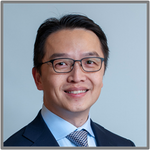
Dr. Eric Liao is the founding Director of the Center for Craniofacial Innovation at the Children’s Hospital of Philadelphia. Dr. Liao is a pediatric plastic surgeon-scientist who leverages convergent advances in fetal care, human genetics and developmental biology to initiate first-in-child trials and treatments. As a surgeon, Dr. Liao cares for patients born with orofacial clefts and complex craniofacial conditions. Dr. Liao also leads the Department of Surgery as the Vice Chair of Academic Affairs, where he is dedicated to nurturing trainees and faculty toward impactful academic careers.
Prior to joining CHOP, Dr. Liao was a Professor of Surgery at Harvard Medical School, lead the Mass General Department of Surgery as Vice Chair of Research, and lead Shriners Children’s Boston as Chief of Staff. Dr. Liao pioneered the zebrafish model to investigate the developmental basis of craniofacial anomalies. Dr. Liao works to address critical knowledge gaps in human genetics to determine pathogenicity of gene variants, by using the zebrafish model as a high throughput functional assay.
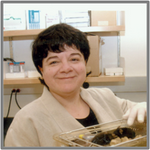
I was born and raised in Modena, Italy, a city that gave many gifts to the world, including the voice of the tenor Luciano Pavarotti, tortellini, balsamic vinegar, and Ferrari cars. I completed my MD in Modena, Italy and then my PhD in Molecular Genetics in Holland at the Erasmus University. After that, I left Europe and came to the US, where I did a postdoc at the Salk Institute in one of the first three Human Genome Centers that were funded by the NIH. The five years at the Salk Institute were breathtaking and they changed my life forever. I became passionate about research in molecular genetics and genomics. After leaving Salk, I was at Stanford University as a senior research associate; there using genetic engineering I generated mouse models with loss of function for the PBX transcription factors, also known as HOX-cofactors. My work showed for the first time that these homeodomain proteins are major developmental regulators in the mammalian embryo. I also established that PBX transcription factors function not only as ancillary factors to HOX proteins, but can effect upstream control of Hox gene expression in the limb bud and also act in embryonic domains devoid of Hox gene expression like the developing head. I left Stanford to start my laboratory at Cornell University Medical School in Manhattan a couple of days before September 11 2001, when the Twin Towers fell.
During the past 21 years, my laboratory has studied the genetic and transcriptional basis of how elaborately patterned tissues form during development. We have combined different genetic approaches, using the mouse as a model system, to understand the mechanisms underlying morphogenetic processes in the embryo. We have discovered that homeodomain-containing transcription factors of the PBX family are critical developmental regulators of multiple organs, including the limb and the craniofacial complex, through the transcriptional control of target genes within tissue-specific regulatory networks. Using genetically-engineered and ethylnitrosourea (ENU)-mutagenized mouse lines we have built models of human congenital birth defects, including Cleft Lip/Palate and Congenital Asplenia. In 2016 I was recruited to UCSF and so I moved my laboratory from Cornell in New York City to San Francisco. Here, we are leveraging the strengths of additional animal model systems, including lizard, chick, pig, and human embryos, to understand the cellular, genetic, transcriptional and epigenetic mechanisms underlying morphogenesis of the embryonic limb and face. Our ultimate goal is to use genome-wide, multi-omics, and systems biology approaches in animal models to identify novel genes and regulatory networks that shape facial features, as well as their morphological variation, evolution, and perturbation in human congenital craniofacial diseases
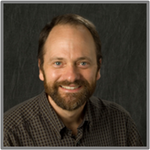
Robert A. Cornell (PhD) received his Bachelor of Science degree from Stanford University where he trained in fly embryology in the laboratory of Corey Goodman. He received his PhD from the Department of Biochemistry at the University of Washington, where he studied mesoderm induction in frogs with David Kimelman. He was a postdoctoral fellow at the Institute for Neuroscience at the University of Oregon, where he investigated neural crest induction in zebrafish under Judith Eisen. From 2001 to 2021 he was a faculty member in in the Department of Anatomy and Cell Biology, University of Iowa College of Medicine, holding the rank of Professor. He held the positions of Graduate Program Director and Vice Chair of Research in that department. He is currently Professor and Graduate Program Director in the Department of Oral Health Sciences at the University of Washington School of Dentistry.
Robert Cornell’s laboratory group studies gene regulatory networks underlying differentiation of periderm, neural crest, and melanocytes, using zebrafish, mouse and cell line models. They also examine how these networks are disrupted in patients with orofacial cleft and other conditions by testing the functional consequences of coding and non-coding variants detected in such patients. His group is funded by grants from the National Institute of Arthritis and Musculoskeletal and Skin Diseases and the National Institute of Dental and Craniofacial Research.
Session 3: Regenerative Medicine (Tissue Engineering)
Moderator
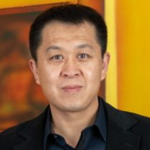
Dr. Sun is a material scientist by training. Approximately 20 years of his R & D experiences were primarily focused on fundamental and translational studies bringing the cutting-edge technologies into clinical applications. Currently, he is leading a multidisciplinary team and developing the next generation dental materials. His team has successfully prepared multifunctional, tougher and more durable dental resin composites comprised of enzymatically and hydrolytically stable ether-based resin networks, self-healing filler systems, and the pH-responsive antimicrobial additives. Prior to these, Dr. Sun has developed nanotechnologies for tissue engineering applications, e.g., realizing a complete control of initial cell contact on biocompatible materials, in terms of cell orientation, from randomly oriented to aligned in parallel. The knowledge learned from the above multidisciplinary projects allows him to work with experts in different research fields with confidence. As the Senior Project Leader at American Dental Association, Dr. Sun has successfully managed the incentive grant from ADA for many years. Also, as the PI of one NIDCR cooperative grant (U01 DE023752), he has led his team and completed this project with seven patents and 28 publications. Now, Dr. Sun is collaborating with Forsyth researcher Dr. Xuesong He to develop smart pH-responsive materials for caries prevention and treatment.
Panelists

Ophir Klein serves as the inaugural executive director of Cedars-Sinai Guerin Children’s and the David and Meredith Kaplan Distinguished Chair in Children’s Health. He is also Adjunct Professor of Orofacial Sciences and Pediatrics at the University of California, San Francisco (UCSF), where he was previously the Larry L. Hillblom Distinguished Professor in Craniofacial Anomalies and the Charles J. Epstein Professor of Human Genetics. Until 2022, he served as Director of the Institute for Human Genetics, Chief of the Division of Medical Genetics, Chair of the Division of Craniofacial Anomalies, and Director of the Program in Craniofacial Biology at UCSF. Dr. Klein was educated at the University of California, Berkeley, where he earned a B.A. in Spanish Literature. He subsequently attended Yale University School of Medicine, where he received a Ph.D. in Genetics and an M.D. He then completed residencies at Yale-New Haven Hospital in Pediatrics and at UCSF in Clinical Genetics. Dr. Klein has received several honors, including a New Innovator Award from the NIH and the E. Mead Johnson Award from the Society for Pediatric Research. Dr. Klein was elected to the American Society for Clinical Investigation, the American Association of Physicians and the National Academy of Medicine, and he is a Fellow of the American Association for the Advancement of Science. Dr. Klein’s research focuses on understanding how organs form in the embryo and how they regenerate in the adult, with a particular emphasis on the processes underlying craniofacial and dental development and renewal as well as understanding how stem cells in the intestinal epithelium enable renewal and regeneration.
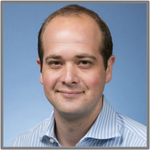
Dr. James received his M.D. with thesis from the University of California, San Francisco with research at Stanford University. Dr. James performed his residency in Anatomic Pathology and fellowships in Orthopaedic Pathology and Surgical Pathology at the University of California, Los Angeles. He received his Ph.D. in bone biology and osteoprogenitor cells from University of California, Los Angeles. Since 2016, he has a been a faculty member of the Department of Pathology at Johns Hopkins University. He practices orthopaedic pathology and co-directs the graduate program in Pathobiology. Current research interests include the interaction of the peripheral nervous system with skeletal tissues, and the use of single cell approaches to understand mesenchymal progenitor cell heterogeneity in mouse and human models.
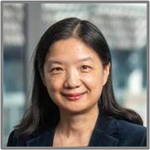
Dr. Yang’s research focuses on understanding cell signaling (Wnt, Hedgehog, Hippo etc.) in development and diseases. Her research bridges discoveries of fundamental mechanisms with better molecular and cellular understanding of human diseases in bone and liver. Dr. Yang has received several honors and awards. She is committed to training students at all levels and serves on many professional research and education committees.
Dr. Yang completed her B.S. degree from the Fudan University in Shanghai, China. She initiated her career as a developmental biologist while a graduate student with Dr. Lee Niswander at the Memorial Sloan-Kettering Cancer Institute, where she was awarded Ph.D. in Molecular Biology. Dr. Yang completed her postdoctoral training in Molecular Genetics and Developmental Biology with Dr. Andy McMahon at Harvard University, with
a fellowship from the Cancer Research Fund of the Damon Runyon-Walter Winchell Foundation. She joined the Genetic Disease Research Branch of the National Human Genome Research Institute (NHGRI) as an investigator in 2000. She was head of the Developmental Genetics Section and a senior investigator since 2006. She moved to Harvard School of Dental Medicine as Professor of Developmental Biology in 2015. She was appointed as Associate Dean for Translational Research in 2018 and Associate Dean for Research in 2021.
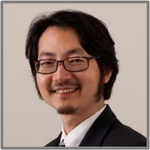
Yunzhi Peter Yang (PhD) is a Full Professor with tenure in the Departments of Orthopaedic Surgery, (by courtesy) of Materials Science and Engineering, and of Bioengineering at Stanford University. Dr. Yang’s research interests are in the areas of biomaterials, drug delivery, medical devices and hybprinting for musculoskeletal tissue engineering (MTE). Hybrinting is a special type of 3-D printing, which is a hybrid of materials plus bioagents to create unique hybrid structures. Dr. Yang’s research leads to more than 140 peer-reviewed journal papers, more than 40 patents and patent applications, multiple technology licensing, and a commercially available research tool. His research program has been funded by US federal government, non-profit foundations, and global industry leaders. He also serves on prestigious journal editorial boards and is a standing member of NIH MTE study section. He is a recipient of research and teaching awards including the March of Dimes Birth Defect Foundation Award, the Wallace H. Coulter Foundation Translational Award, the Annals of Biomedical Engineering Award, the NIH Star Award, and the
TechConnect Innovation Award for 3D printing. He has been inducted to be an AIMBE fellow in 2020. His research in synthetic bone grafts and stem cells has been featured by Science News, New York Times, Telegraph, Wires and TV stations.
Day 3: Friday, Nov. 4
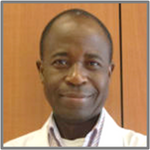
Gabriel Mbalaviele received his PhD in Developmental Physiology in Paris, France. After a post-doctoral experience at the University of Texas Health Science Center, San Antonio, TX, with Dr. Dr. Toshiyuki Yoneda and Dr. Gregory Mundy, one of the pioneers of bone biology, he decided to develop a career in the biotech industry. After a 13-year successful career that saw him at the forefront in the development of new therapeutic targets for inflammatory arthritis, first at Osiris Therapeutics, then at Pharmacia and Pfizer, in 2010 he decided to make a sharp change by joining the Division of Bone and Mineral Diseases at Washington University School of Medicine in St. Louis. This was considered by many a risky transition, but with determination, talent, and hard work, Dr. Mbalaviele thrived in the academic environment and surpassed any expectations very rapidly, a brilliant example of a successful transition from industry to academia. He has established original lines of research on the role of inflammasomes in bone biology and disease, building an independent and productive research group and securing uninterrupted, stable funding from the NIH and industry. He has built a reputation as a world-leading expert in the biology of innate immunity. He was promoted to the rank of Professor of Medicine with tenure in 2020, after reaching an outstanding academic achievement through an unusual professional and personal journey.
Aside from his academic achievements, Dr. Mbalaviele served in grant review panels for the NIH, the VA, and other international agencies, and as a member of the American Society for Bone and Mineral Research Development Committee. He is currently a standing member of the NIH Study Section/SBDD, and is directly involved in the teaching and mentoring missions of the T32 Skeletal Disorders Training Program of the Division of Bone and Mineral Diseases, and the Division of Biology and Biomedical Sciences of Washington University. He contributes to the Bio STL/BioGenerator incubator and other initiatives to help faculty reach out to the biotech community, and serves in leadership positions to enhance diversity, acting as an advisor and mentor of Mentorship to Enhance Diversity in Academia (MEDA) at Washington University. He also has numerous editorial responsibilities, including serving as a Scientific Advisory Board member of the prestigious journal, Science Immunology.
Session 4: Emerging Research
Moderator
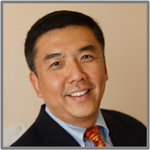
Dr. Yang Chai is the University Professor and the George and MaryLou Boone Chair in Craniofacial Biology at the University of Southern California. He serves as the Director of the Center for Craniofacial Molecular Biology (CCMB) and Associate Dean of Research at the Herman Ostrow School of Dentistry of USC. Dr. Chai earned a DMD degree from Peking University School of Stomatology as well as DDS and PhD in Craniofacial Biology from the University of Southern California. He is most noted for his research on craniofacial development and birth defects, which has transformed the field and led to the successful rescue of cleft palate in mouse embryos. He also studies stem cells and is currently using innovative 3D-printed scaffolds seeded with stem cells to regenerate tissue for patients who have lost bone due to trauma, congenital defects, or disease.
Dr. Chai is a member of the National Academy of Medicine. He is an elected member of the American Academy of Arts and Sciences (AAAS). Dr. Chai has authored more than 160 scientific papers and numerous book chapters, and recently edited a book on craniofacial development. Dr. Chai has been continuously funded by the National Institute of Health for more than 25 years. His work has earned him multiple awards including the NIH MERIT award and the 2011 IADR (International Association of Dental Research) Distinguished Scientist Award.
Panelists
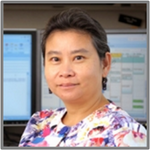
Dr. Shum is Director of the Division of Extramural Research at the National Institute of Dental and Craniofacial Research (NIDCR), National Institutes of Health (NIH). She provides leadership and guidance for the planning, development, implementation, and evaluation of NIDCR extramural research portfolio encompassing diverse areas in dental, oral, and craniofacial sciences. The goal is to support research to capture the most promising discoveries and emerging technologies for rapid translation to clinical applications for improving the health of all people.
Dr. Shum has been with NIH for 27 years and represents NIDCR on trans-NIH and interagency working groups. Dr. Shum earned her PhD degree from the University of North Carolina Chapel Hill, completed postdoctoral training at the Center for Craniofacial Molecular Biology at the University of Southern California and at the University of California San Francisco School of Dentistry, and conducted research in the NIH intramural program on craniofacial skeletal development, before she joined that extramural program in 2003. She has led the Division of Extramural Research since 2014.
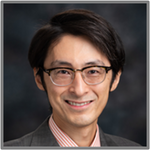
I am an orthodontist-scientist and an Associate Professor at the University of Texas Health Science Center at Houston School of Dentistry. My laboratory has been studying the fundamental biology of skeletal stem cells that play important roles in bone development, diseases and regeneration, using mouse genetics in vivo lineage-tracing approaches. I completed my DDS, PhD and orthodontic training in Tokyo Medical and Dental University, Japan, with a diplomate of the Japanese Board of Orthodontics. He subsequently completed his research fellowship in Massachusetts General Hospital under the mentorship of Dr. Henry Kronenberg, a prominent endocrinologist-scientist in bone biology. My research program has been continuously supported by NIDCR since 2012 through K99, R00 and R01 mechanisms. My work on skeletal stem cells has been published in journals such as Nature, Nature Communications, Journal Bone and Mineral Research and Journal of Dental Research

Dr. Hsu has been recognized as a world-renowned leader in craniofacial biology. He is also a pioneer in Wnt signaling with the seminal study of Axin and Gpr177/mouse Wntless. His lab is interested in the mechanisms that support embryonic morphogenesis, tissue homeostasis, disease pathogenesis, and organ repair and regeneration. Focusing initially on Wnt as one of the most prevalent signaling pathways in developmental biology, his research team is establishing how Wnt signaling and its crosstalk with other pathways control pluripotency and differentiation in stem cells and homeostasis in mature cells. More recently, his lab also has focused on epigenetics, post-translational modification, ciliopathy, and laminopathy, causally linked to human diseases. The objective is to use the basic knowledge to develop innovative strategies for disease prevention and therapy.
Dr. Hsu received his Ph.D. in Biomedical Sciences at Mount Sinai Medical Center in New York City. He was awarded a postdoctoral fellowship from National Kidney Foundation to study Mammalian Genetics and Developmental Biology at Columbia University. Dr. Hsu had been a Professor of Biomedical Genetics at the University of Rochester Medical Center since 2002. He was also a course director of Advanced Genetics, served as co-Director of an NIDCR T90/R90 training grant, and hold Dean’s Professorship before joining Forsyth in 2021.
A tremendous effort has been devoted by Dr. Hsu to serve on international committees and review panels (e.g., NIH, DOD, Medical Research Council of UK, Japanese Society for Promotion of Science, A*STAR of Singapore, Dutch Cancer Society), and as the editor (e.g., PLOS Genetics, Journal of Dental Research) and reviewer (e.g., Science Translational Medicine, Science Signaling, Nature Communications, PNAS, EMBO, Cancer Research, Cell Death & Differentiation). The leadership that Dr. Hsu provides to the field of Developmental and Stem Cell Sciences is further solidified by more than 70 invited lectureships at research conferences and leading biomedical institutions worldwide. He is dedicated to advocating research and serving the academic community.
Dr. Hsu maintains an active teaching role throughout his career. In addition to being a lecturer and course director, a critical aspect of his teaching is being an active mentor. Dr. Hsu has supervised a vast number of students and postdocs with many of them holding principal investigator positions in academic and research-oriented institutions. He is particularly passionate about undergraduate education and has an extensive track record of training future scientists. Most of them went on to medical, dental, and graduate schools. His recent research mainly focuses on craniofacial and skeletal development, congenital birth defects, and the study of skeletal stem cells and stem cell-mediated regeneration. The outcome of his research has always been impactful and published in prestigious journals. His vibrant research program has been supported by the National Institutes of Health, Department of Defense, NYSTEM/New York State Stem Cell Science, March of Dimes. Dr. Hsu provides leadership for the Craniofacial and Dental Research Center at The Forsyth Institute.
